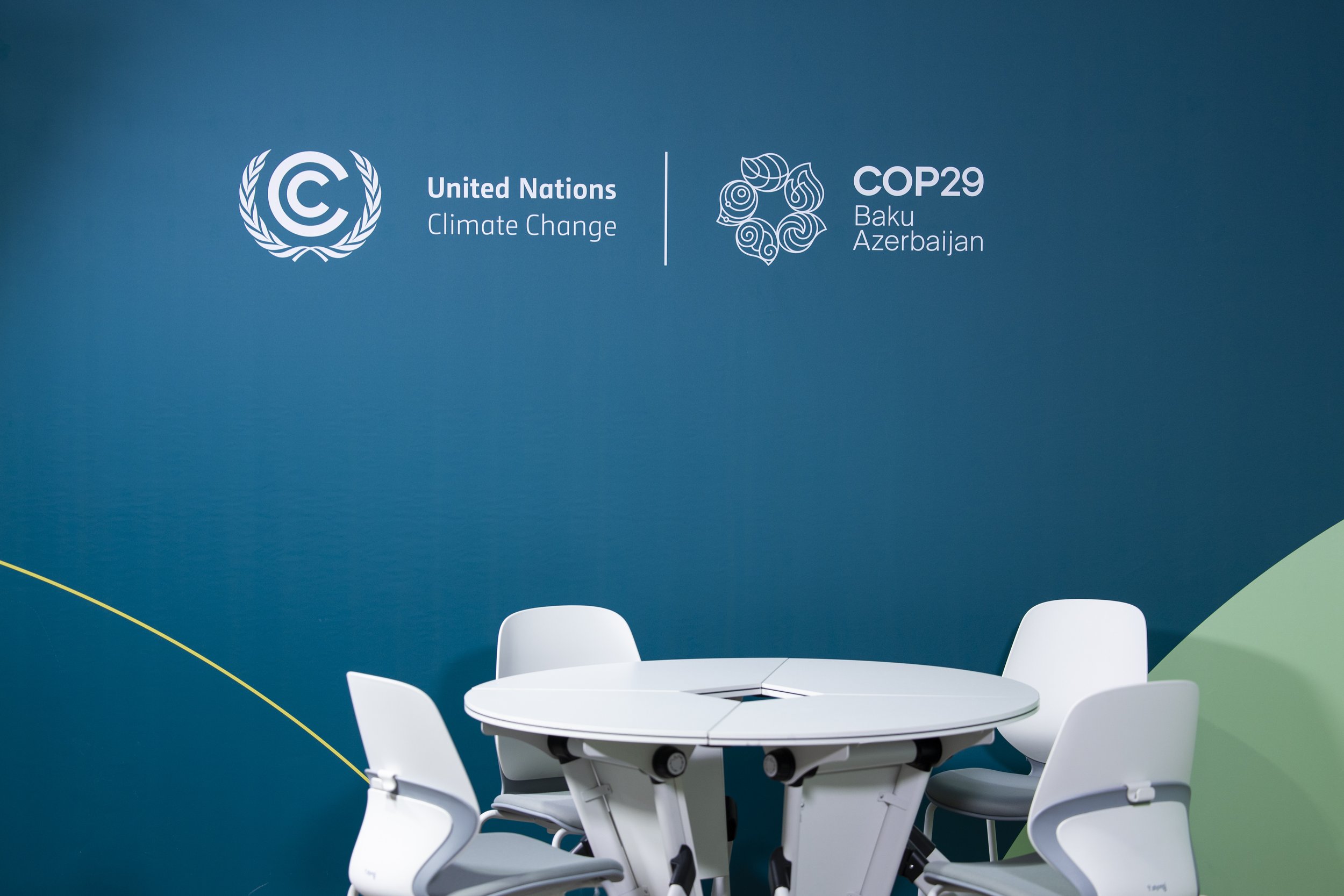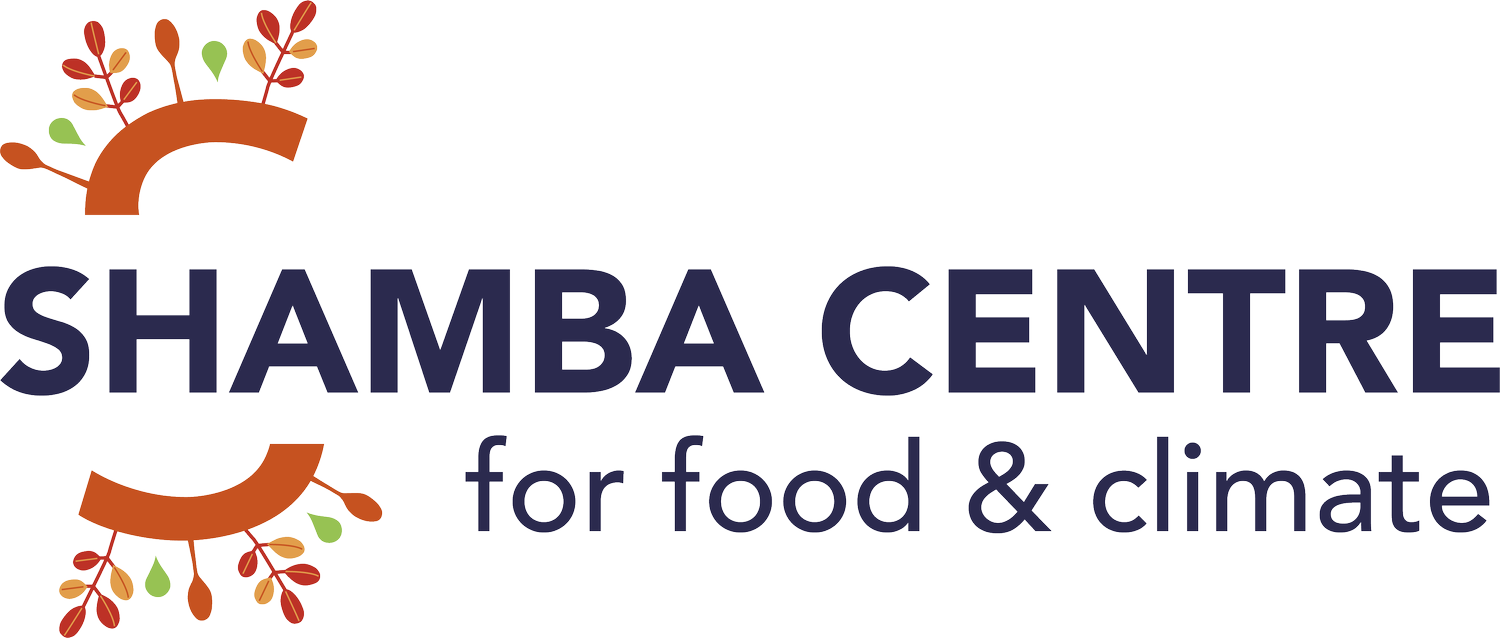
CoP 29: more about procedure than progress?
11 November 2024, Oshani Perera, Francine Picard and Carin Smaller
As the UN climate summit gets underway in Baku, Azerbaijan today, it is also the anniversary of the 1918 Armistice which ended the First World War. This time, however - over 107 years later - we are facing an existential war with ourselves.
As reported by EU Copernicus Climate Data Store, 2024 is the hottest year on record and the first year above the 1.5C global warming threshold. Given that countries’ Nationally Determine Contributions (NDCs) are nowhere near the ambitions required to maintain 1.5C, we might ask if talks on remaining below this threshold are too little and too late.
We are disappointed about the lack of sincere leadership. Azerbaijan is one of the birthplaces of the oil industry and Baku is one of the first oil towns. For decades, it was known as the ‘Black City’ because its buildings were stained black from the soot from oil wells and refineries. Fossil fuels make up 90 percent of the country’s exports and Azerbaijan remains one of the top 10 oil and gas dependent economies (UNDP 2023). It was therefore not surprising to read the Global Witness undercover investigation on how Azerbaijan’s deputy energy minister and CEO of CoP 29 has promoted investments in oil and gas during negotiations leading up to CoP 29. With the war in Ukraine, Azerbaijan is not planning to miss any opportunity to be a fossil fuel supplier of choice; production in the country is to increase by a third over the next 10 years (The Guardian, 2024).
We also are worried about confidence. Negotiators from Papua New Guinea have decided not to attend the summit, citing disappointment over progress on Article 5 and Article 6, which focus on conserving greenhouse gas sinks, including forests, and creating a framework for international cooperation on carbon markets (Pacific News Service 2024). The USA may again exit the Paris Agreement for the 2nd time which will make negotiations all the more difficult. CoP 29 will therefore miss the opportunity to make climate a strategy for development, innovation, and cohesion. Instead, it will be about money. What will be the annual climate finance target? What targets will be set for the Loss and Damage fund? And who will contribute towards them?
Climate finance demands are closing on USD 1 trillion per annum and rising as a warming world makes mitigation and adaptation more expensive. Half the money is expected to come from rich countries and the rest from ‘innovative finance’. This offers some good news: ‘innovative finance’ can still offer the opportunity for negotiators to make climate a growth strategy.
Let us examine how:
Taxing fossil fuel companies, both State owned and listed, has long been recommended by the International Energy Agency, OECD, and UN agencies. The windfall profits from these companies since the start of the war in Ukraine is well documented and taxing these profits could seed a new wave of technology transfer.
Asking petrostates to step up funding is another source that we strongly support. The polluter pays principle is, after all, the bedrock of sustainable finance. We also support the plan put forward by Hon Gordon Brown that petrostates should contribute 3% of their annual earnings from fossil fuels to low carbon development in G77 countries. Based on data from 2022, this adds up to an annual contribution of USD 25 billion.
Given that 1% of emitters are responsible for 50% of aviation emissions (Transport & Environment 2023), a carbon levy on frequent, business, and first-class travelers and an even bigger levy on private jet users is not unreasonable. To bring tax justice, the proceeds could be earmarked for low carbon transport.
Carbon levies on shipping are also long overdue, especially on fleets carrying fossil fuels and their derivatives. Shipping contributes to 3% of global emissions and carbon levies were discussed at the Global Financing Pact hosted by French President Emmanuel Macron in 2023. At the same meeting, Japan, one of the largest ship-owning nations agreed to a levy of USD 56 a tonne of carbon from 2025 (Lai, 2022).
Redirecting subsidies from fossil fuels, especially those awarded by petrostates to their own state-owned companies and special interests will be worthwhile. Unfortunately, this is unlikely to receive any support - not even in the form of lip service. A similar fate is likely to meet all proposals on carbon taxes by both rich and poor countries. This serves as a stark reminder on how integrated petroleum is in our lives.
Making better use of proceeds from carbon trading and offsets are likely to be more realistic. The IMF reports that while emissions trading schemes and carbon taxes (including those under planning) cover 30% of emissions, the prices of emissions are still too cheap (Black et al, 2022).
The carbon divide hit the news during CoP 28 in the UAE with Oxfam International and the Stockholm Environmental Institute reporting that the richest 1% emit as much as two-thirds of humanity (Oxfam 2023). The Brazilian G20 has since calling for a billionaire tax of 2% (G20, 2024). But wealth taxes on the super-rich can be extremely distorting unless all countries, including tax havens and petrostates, decide to play along.
The reforms of the multilateral development banks (MDBs) are promising. The World Bank Group is using ‘callable capital’ and bringing in further reforms on the Capital Adequacy Framework to reduce loan-to-equity ratios from 20 to 19 percent. As reported by the World Bank Group, this can increase potential lending commitments by approximately USD 50 billion over ten years (World Bank, 2024). At the 2024 World Bank and IMF Spring Meetings, further instruments in the form of a shareholder capital instrument (bond that pays a coupon) and a portfolio guarantee platform were also announced. Further incentives are expected for donor governments and developing countries to increase investment in eight global challenges with a cross-border impact: climate change mitigation and adaptation, biodiversity, food and nutrition security, water security and access, energy access, fragility and conflict, pandemic prevention, and preparedness, and enabling digitalization (World Bank, 2024).
While most of the above proposals promise opportunities, they are difficult to implement. Citizens of rich countries are increasingly seeing climate finance as a liberal democratic story that needs to end at their national boundaries. Climate investment is welcome, but only at home. Negotiators from developing countries would do well to recognize this and match the demands for funding with even more ambitious commitments on accountability and governance.
As with the negotiations on the Armistice 107 years ago, which began at the eleventh hour on the eleventh day of the eleventh month in 1918, we are today, the 11 of November 2024, at the 11th hour of an existential threat to ourselves. Check back with us in 2 weeks as we will then know more on how this 11th hour unfolds.
References
Black, S. Parry, I. Zhunussova K. (2022). More Countries Are Pricing Carbon, but Emissions Are Still Too Cheap. [blog] IMF. https://www.imf.org/en/Blogs/Articles/2022/07/21/blog-more-countries-are-pricing-carbon-but-emissions-are-still-too-cheap#:~:text=So%20far%2C%2046%20countries%20are,(in%20the%20European%20Union).
G20. (1 March 2024) Economist Gabriel Zucman proposes that billionaires pay at least 2% in annual taxes on their fortunes. https://www.g20.org/en/news/economist-gabriel-zucman-proposes-that-billionaires-pay-at-least-2-in-annual-taxes-on-their-fortunes
Global Witness. (November 2024) COP29 is for oil deals. https://www.globalwitness.org/en/campaigns/fossil-gas/cop-is-for-oil-deals/
Global Witness. (8 January 2024). COP29 host country priming the pumps for a huge hike in gas production. https://www.globalwitness.org/en/press-releases/cop29-host-country-priming-pumps-huge-hike-gas-production/
Gordon Brown. (25 September 2023). Rich Petro-States Should Pay £25bn “Global Windfall Levy” To Fight Climate Change. [press release] https://gordonandsarahbrown.com/2023/09/press-release-rich-petro-states-should-pay-25bn-global-windfall-levy-to-fight-climate-change/
Harvey, F. (July 2024). Cop29 host Azerbaijan seeks $1bn from fossil fuel producers for climate fund. The Guardian. https://www.theguardian.com/world/article/2024/jul/20/cop29-host-azerbaijan-seeks-1bn-from-fossil-fuel-producers-for-climate-fund
Lai, Olivia. (6 May 2022). Japan Carbon Tax Proposal Aims to Tackle Shipping Emissions. Earth.Org. https://earth.org/japan-carbon-tax-proposal-aims-to-tackle-shipping-emissions/
Pacific News Service (11 November 2024). PNG PM Marape declines COP29 participation, Calls for greater commitment to rainforest conservation. https://pina.com.fj/2024/11/11/png-pm-marape-declines-cop29-participation-calls-for-greater-commitment-to-rainforest-conservation/
UNDP. (15 May 2023). Global Décarbonisation in Fossil Fuel Export-Dépendent Economies. https://www.undp.org/publications/dfs-global-decarbonization-fossil-fuel-export-dependent-economies
World Bank Group. (April 2024). Tackling Inequality to Revitalize Growth and Reduce Poverty in Africa. Africa’s Pulse, 29. https://intosairussia.org/images/reports/WB_Pulse_Spring2024_vol29_web.pdf
